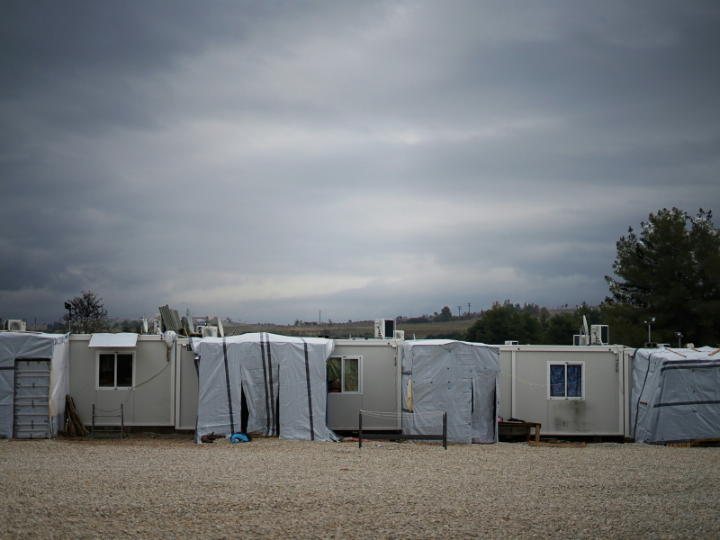Can world regions cooperate on arms export controls?
Could EU-ASEAN cooperation benefit much needed region-wide efforts at strengthening arms export controls in both Europe and Southeast Asia? There is reason to believe so

60% of Germany’s arms export is for countries outside of the EU or NATO: some of the significant recipient countries include Algeria, Egypt, the United Arab Emirates (UAE) and Saudi Arabia. Both UAE and Saudi Arabia take part in the ongoing civil war in Yemen that began in 2015.
Liselotte Odgaard*
Germany, for example, is known to be a European Union member state that promotes peace, diplomacy and international institutions, and Berlin likes to highlight that Germany has adopted some of the strictest arms export control measures. However, in 2017, German arms producers exported arms for €3.8 billion.
60% of Germany’s arms export is for countries outside of the EU or NATO: some of the significant recipient countries include Algeria, Egypt, the United Arab Emirates (UAE) and Saudi Arabia. Both UAE and Saudi Arabia take part in the ongoing civil war in Yemen that began in 2015.
Turkey, which also buys arms from Germany, has used German-produced tanks in northern Syria to fight the Kurdish militia despite a bilateral agreement stating the tanks can only be used to defend civilians or to fight the terrorist organisation Daesh.
The chasm between Germany’s foreign policy statements and the sizeable German arms export is not an exceptional case, however. Instead, it is symptomatic of the double standards applied by numerous EU member states in their foreign policies. European arms exports to countries with a dubious track record of participating in civil wars with severe atrocities against civilians do not only undermine the image of the EU as an arduous protector of civil and political rights. European arms exports actively undermine efforts to halt atrocity crimes and acts of terrorism.
To address European double standards on arms exports, the European Parliament recently suggested a facelift of EU arms export controls. These entail setting up an arms control supervisory body under the auspices of High Representative Federica Mogherini; creating a mechanism which sanctions member states that do not comply with the EU’s Common Position on arms exports; and increasing transparency on arms exports reporting by providing more and timely information on export licenses.
Even if an upgrade is still far off on the horizon, the proposal reflects a growing willingness among EU member states to debate how to go about arms export controls in a coordinated fashion at a time of growing terrorist challenges and with the Russian threat on the rise.
At the same time, the Asia-Pacific faces similarly mounting threats of terrorism and rising tensions between China and neighbouring states. Nevertheless, it is the least enthusiastic region in the world to adopt arms exports control measures. The region has the lowest number of states ratifying and acceding to the Arms Trade Treaty (ATT) that entered into force on 24 December 2014 and that is the first multilateral treaty to regulate the international trade on conventional arms.
Efforts to tighten arms transfer controls seem to be at a stalemate in a region with an arms race in the making. Current military expenditure patterns and arms procurement dynamics do not yet add up to an arms race. However, increases in military expenditures and ambitious military acquisition programmes are beyond the level of ordinary military modernisation. Even countries such as Malaysia and Japan that have low defence expenditures plan to increase their spending.
One reason for this arms race in the making is China’s efforts to create a competitive arms industry. The country wants to proceed with military reforms intended to make the People’s Liberation Army a world-class force allowing China to expand its military-strategic influence. This has given rise to growing tensions across the Asia-Pacific. However, terrorism and narcotics also explain significant rises in spending. For example, the Philippines is heavily engaged in counter-narcotics operations which give rise to increased arms spending.
The member states of the Association of Southeast Asian Nations (ASEAN) are divided on the issue of arms export controls. Cambodia, Malaysia, the Philippines, Singapore and Thailand have signed the ATT, although so far they have not ratified the treaty. The EU has given substantial technical assistance to these countries to develop their strategic trade control systems. For example, the Philippines’ 2015 Strategic Trade Management Act covers dual use items and arms transfer controls and it was given top priority. On the other hand, Brunei, Indonesia, Laos, Myanmar and Vietnam do not seem prepared to sign the ATT.
The EU should step up its engagement in Southeast Asian efforts to strengthen their arms export controls by working with the ASEAN secretariat on starting a debate in Southeast Asia on the need for regional institutionalised cooperation on this issue.
ASEAN is able to base such efforts on decades of experience in policy coordination across regional dividing lines far greater than those in Europe. Moreover, a sufficient number of ASEAN member states have built strategic trade controls that it is feasible to discuss regional initiatives in this area, even if it entails different levels of commitment.
The EU-ASEAN cooperation could indeed be used to shed light on the need for strengthening mechanisms in the EU as suggested by the Parliament. This would help avoid undesirable technology transfers to China and the unwitting use of European arms in support of terrorism and atrocities against civilians.
*Associate Professor at the Royal Danish Defence College specialising in Chinese security
*First published in friendsofeurope.org



 By: N. Peter Kramer
By: N. Peter Kramer

